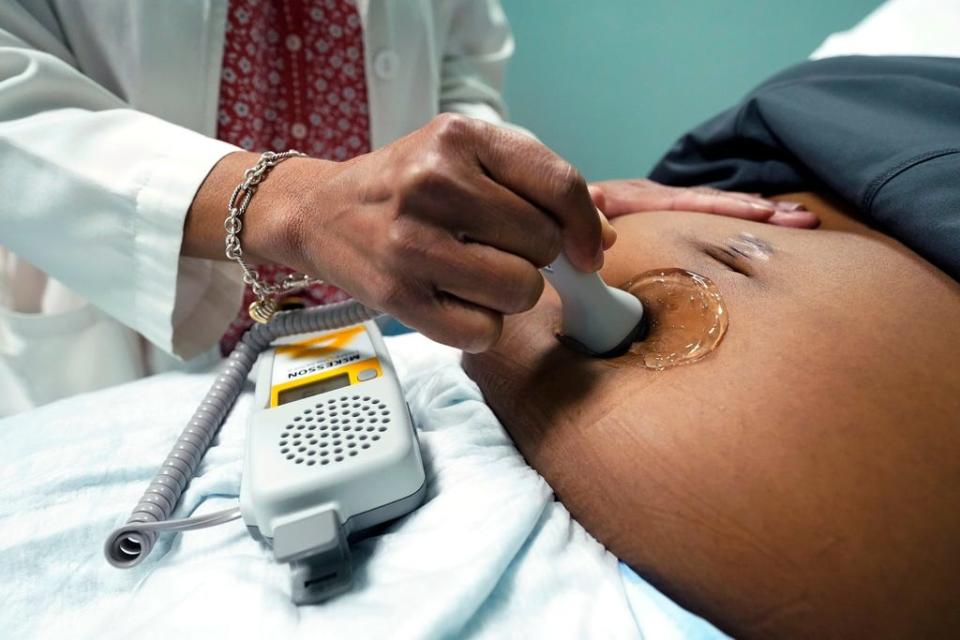Pregnancy complications still kill women; Wynn Hospital event to discuss who's most at risk
American women still die from complications related to pregnancy and childbirth, 1,205 of them in 2021.
That number has been going up since 2000, according to the Centers for Disease Control and Prevention.
And Black women face the biggest risks.
The maternal mortality rate for non-Hispanic Black women was 2.6 times the rate for non-Hispanic white women in 2021, CDC data shows. The CDC uses the World Health Organization definition of maternal mortality: death during or within 42 days of the end of pregnancy of a cause related to the pregnancy.

The Mohawk Valley Health System and the Rome chapter of the NAACP are holding a forum, Understanding the Maternal Mortality Crisis in Minority Communities, at 5 p.m. on Friday, Feb. 16 in the auditorium of the Wynn Hospital in Utica.
It will include a screening of the documentary Aftershock, winner of Special Jury Award: Impact for Change in the documentary category at the 2022 Sundance Film Festival. The documentary focuses on two minority families who lose women during and after childbirth.
After the documentary, Dr. Rose Antilus, medical director for obstetrics and gynecology for MVHS, will lead a discussion on how to strengthen prenatal and maternal care in the Utica area.
Antilus shared some troubling statistics:
The rate of maternal deaths in this country shot up 78 percent between 2000 and 2020 to the highest rate among industrialized nations.
Black women age 25 and older die of pregnancy-related causes at four times the rate of other women in the same age group.
The maternal mortality rate among Black women did not improve with higher socioeconomic status or a higher educational level. But the degree of disparity increased with educational level. From 2007 to 2016, Black women with college degrees faced a maternal mortality rate five times higher than non-Hispanic white women.
In rural areas, maternal deaths are twice as likely as in urban areas.
Women have become more aware of the risks over the years thanks to family advocacy, the documentary being shown Friday, news stories and the CDC’s Hear Her Campaign to prevent pregnancy-related deaths, Antilus said. But her experience has shown her that there seems to be less awareness in rural areas, she said.
Many factors affect maternal mortality rates and many of them likely affect Black women disproportionately, Antilus said. These issues include less access to quality, affordable health care and limited postpartum care, which typically only lasts six weeks, she said. More education is needed around pregnancy symptoms and urgent warning signs with a result that risks and complications aren’t recognized as early as they should be, she said.
Certain chronic health conditions, such as hypertension, heart disease and diabetes, are more common about Black people, Antilus said.
And both structural racism and implicit bias also play a role, she said.
In New York state, the number of maternal deaths did start to go up each year starting in 2000. By 2010, the state had the 46th worst rate in the nation, according to the New York State Department of Health.
More: Amid pregnancy-related deaths, Herkimer midwife urges prioritizing mental health
More: Valentine's Day special: Mohawk Valley couples, business owners share deep love
But the state worked to address the issue and the rate started to fall, again, from 24.4 deaths per 100,000 live births in 2008-2010 to 18.1 deaths per 100,000 live births in 2016-2018, according to the health department.
But Black women in New York in 2018 died of pregnancy-related causes at a rate five times higher than white women, the department noted in a maternal mortality report.
Free valet parking will be available at the entrance to the hospital for the event. Register for the free forum here.
This article originally appeared on Observer-Dispatch: NAACP, MVHS host forum on minorities' greater risk during pregnancy

